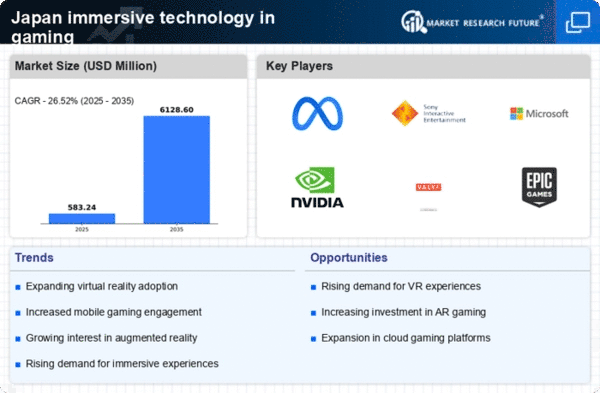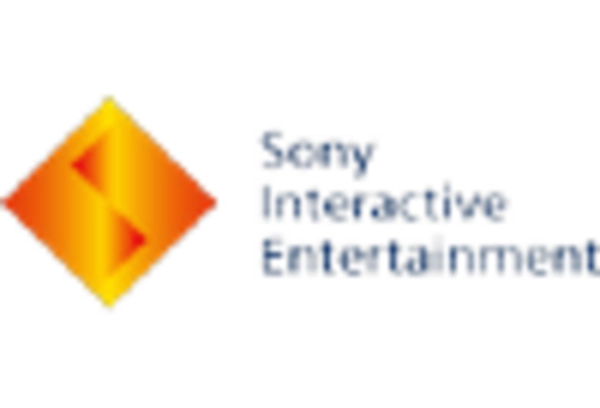Rise of Esports and Competitive Gaming
The immersive technology-in-gaming-industry market is also being propelled by the rise of esports and competitive gaming in Japan. As esports gains traction, there is an increasing demand for immersive gaming experiences that enhance spectator engagement. Tournaments and events are increasingly incorporating VR and AR elements to create a more captivating atmosphere for both players and viewers. The esports market in Japan is projected to reach $1 billion by 2025, suggesting a strong correlation between competitive gaming and the adoption of immersive technologies. This trend is likely to encourage further investment in immersive gaming solutions, thereby fostering market growth.
Cultural Acceptance of Gaming Technologies
Cultural factors play a crucial role in shaping the immersive technology-in-gaming-industry market in Japan. The Japanese population has a long-standing affinity for gaming, which facilitates the acceptance of new technologies such as VR and AR. This cultural inclination towards gaming encourages developers to innovate and experiment with immersive experiences. Furthermore, the integration of traditional Japanese aesthetics into immersive games can enhance their appeal, attracting a broader audience. As a result, the immersive technology-in-gaming-industry market is likely to benefit from this cultural acceptance, leading to increased adoption and market growth.
Government Support for Technology Development
The immersive technology-in-gaming-industry market in Japan is benefiting from government initiatives aimed at promoting technology development and innovation. The Japanese government has been actively investing in research and development programs that support the growth of immersive technologies. For instance, funding for tech startups focused on VR and AR applications has increased, fostering a conducive environment for innovation. This support is expected to enhance the capabilities of the immersive technology-in-gaming-industry market, potentially leading to the creation of groundbreaking gaming experiences. As a result, the market may witness accelerated growth driven by these governmental efforts.
Technological Advancements in Gaming Hardware
The immersive technology-in-gaming-industry market is significantly influenced by rapid advancements in gaming hardware. Innovations in graphics processing units (GPUs), head-mounted displays (HMDs), and motion tracking systems are enhancing the quality of immersive experiences. For instance, the introduction of high-resolution displays and low-latency tracking has improved user engagement and satisfaction. In Japan, the sales of VR headsets are expected to exceed 1 million units by the end of 2025, indicating a robust growth trajectory. These technological improvements not only attract gamers but also encourage developers to create more sophisticated and immersive gaming content, thereby driving market expansion.
Increased Consumer Demand for Immersive Experiences
The immersive technology-in-gaming-industry market in Japan is experiencing a notable surge in consumer demand for more engaging and interactive gaming experiences. This trend is driven by the growing popularity of virtual reality (VR) and augmented reality (AR) technologies, which offer players a more immersive environment. According to recent data, the market for VR gaming in Japan is projected to reach approximately $1.5 billion by 2026, reflecting a compound annual growth rate (CAGR) of around 25%. This increasing consumer interest is prompting game developers to invest heavily in immersive technologies, thereby enhancing the overall gaming experience and expanding the market's reach.
















